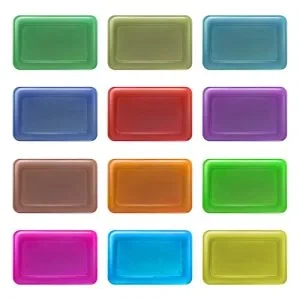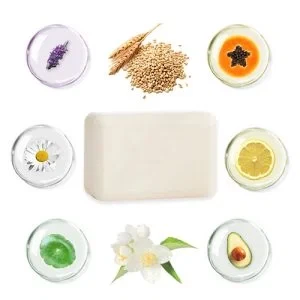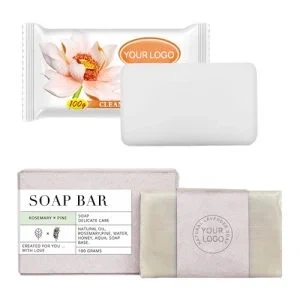As more people are interested in clean beauty, sustainable practices, and knowing what's in their products, making your own cold process soap is a great way to take charge of what you put on your face. You may change the colours, smells, and components of DIY soap, and it also helps you become more self-sufficient and cuts down on single-use plastics.
This book will teach you how to make cold process soap step by step, from beginner to expert.

What Is Cold Process Soap and How Is It Different?
When oils or butters are mixed with a lye solution (sodium hydroxide dissolved in water), a chemical reaction called saponification happens. This is how cold process soap is made. When you mix oil and lye without adding heat, they turn into soap and glycerine, which makes a soft, moisturising bar.
Cold Process vs. Other Ways:
- Hot Process: employs heat, which means less time for curing, but the texture is harsher and the look is less appealing.
- Melt & Pour: uses pre-made soap bases, which is easy but doesn't let you make your own.
Cold process gives you full control over the ingredients and makes sure that the soap keeps glycerine, which is good for your skin.
Tools and Ingredients You Need Before You Start
Tools You'll Need:
Stainless steel or heavy-duty glass mixing bowl/pot
Stick blender for emulsification
Digital scale for precise measurements
Thermometer to track temperatures
Silicone molds
Safety gear: gloves, goggles, apron
Ingredients Checklist:
Base oils: olive oil, coconut oil, palm oil or shea butter
Lye: sodium hydroxide
Distilled water
Optional: essential oils, natural colorants, clays, and exfoliants
Safety First: Dealing with Lye In the right way
Lye is a useful chemical, but it may also be hazardous. Be careful when you use it:
- Always wear goggles and gloves.
- Work in a locati0n with good air flow
- Put lye in the water, not the other way around.
- Only use containers made of strong glass, stainless steel, or silicone.
- Mix slowly to keep the heat down and stop splatters.
Following these instructions will keep you safe and make good soap.
Step-by-Step: How to Make Cold Process Soap
Step 1: Get the Lye Solution Ready
Carefully mix the measured lye with distilled water until it is entirely dissolved. Let it cool down to 100–120°F.
Step 2: Mix the oils and heat them up.
Melt solid oils, combine them with liquid oils, and let them cool to around 100–120°F. This will help keep them from separating.
Step 3: Mix till you see a trace
Pour lye water into the oils slowly. Use a stick blender until the mixture is the same consistency as a light pudding.
Step 4: Add colour and scents
After tracing, you can add essential oils, natural colourants, clays, or exfoliants as you choose.
Step 5: Put in Moulds
Put the soap batter into coated silicone moulds and tap them lightly to get rid of air pockets.
Step 6: Set and insulate
To keep the heat in, cover the moulds with a towel or cardboard. Let the soap solidify for 24 to 48 hours.
Step 7: Take the mould off and let it cure.
After the soap has hardened, take it out and let it cure on a tray with holes in it in a cool, dry place for 4 to 6 weeks. This last step makes things harder, makes more lather, and makes them gentler.
Things to Avoid Doing Wrong (Especially for Newbies)
- Use a digital scale to get the right weight.
- Using tap water (should use distilled water)
- Temperature mismatch can cause things to come apart.
- Too much blending might make the batter thick and change the texture.
- Not curing it-before you can utilise it, it needs to totally saponify.
To make bars that are smooth, safe, and good for your skin, stay away from these mistakes.
Basic Cold Process Soap Recipe (Beginner-Friendly)
Recipe for a 1 kg batch:
- Olive oil – 400 g (40%)
- Coconut oil – 300 g (30%)
- Shea butter (or palm oil) – 200 g (20%)
- Castor oil – 100 g (10%)
- Distilled water – ~330 ml
- Lye – calculate precisely with a lye calculator
- Essential oil (e.g., lavender) – 20–30 ml (2–3%)
- Optional: clay or herbal additive
Use tools like SoapCalc to confirm lye amounts and avoid errors.
Ready to Scale? Work with a Trusted Manufacturer
Want to start your own soap company but want help from professionals? Poleview Biotech is a soap producer in China that can help you grow your business:
✅ Custom cold process formulae using plant oils and one-of-a-kind aroma mixes
✅ Low minimum order quantity (MOQ) – great for new businesses and small brands
✅ Eco-friendly solutions and private-label packaging
✅ Complies fully with US and EU rules for cosmetics
✅ Help with everything, from research and development to shipment
Poleview Biotech helps you get your soap ready for the market, whether it's for DTC, salons, Amazon, or retail.
We Ensure Every Private Label Bar Soap With Unique Formulations Will Stand Out.
Private Label Bar Soap customization in various scents, colors, and packaging types is what Poleview Biotechnology Co. LTD does best.
We offer OEM ODM bar soap in various formulations, packaging, and ingredients.
We also have a strong packaging supply chain to provide the widest range of customized packaging services for your bar soap.









